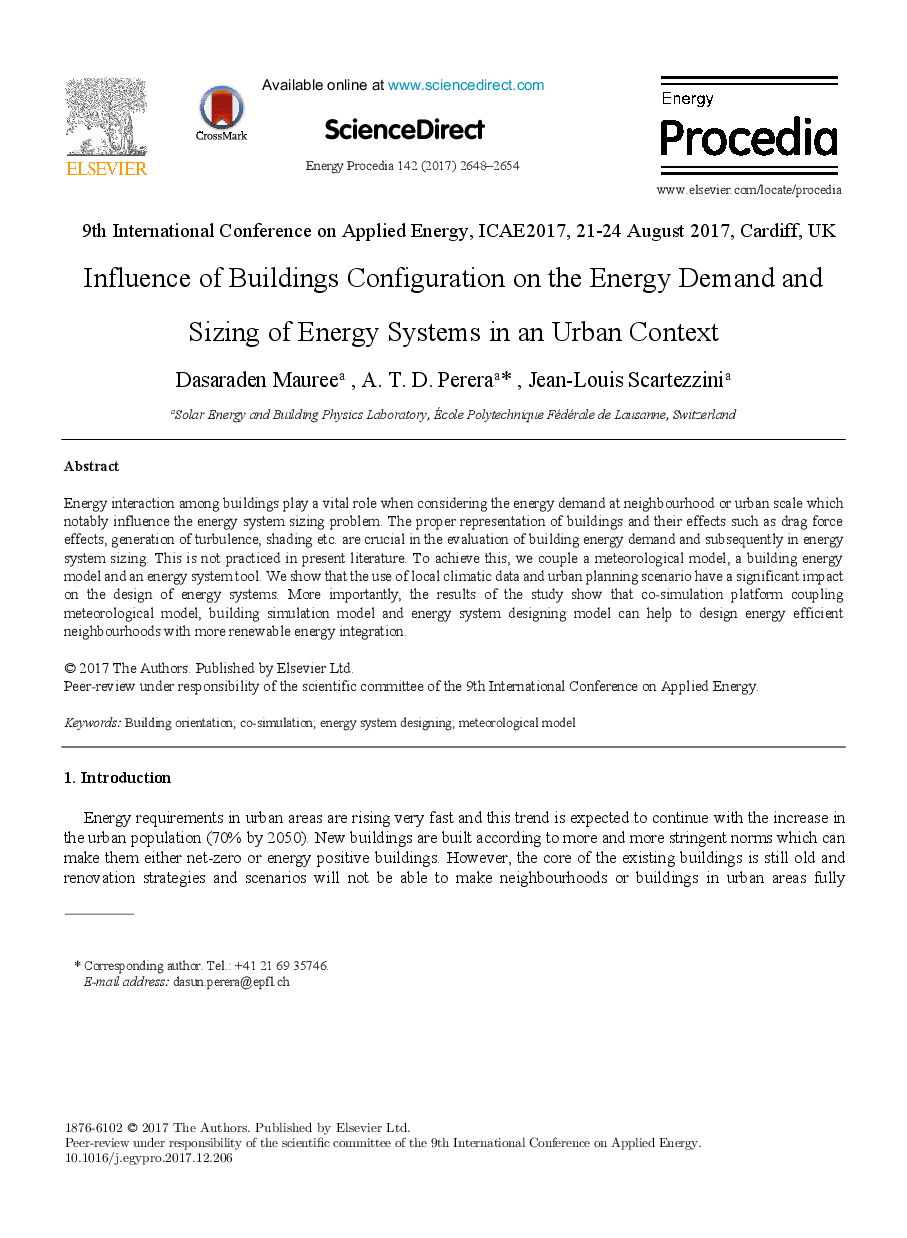ترجمه فارسی عنوان مقاله
تأثیر تنظیمات ساختمان بر تقاضای انرژی و اندازه سیستم های انرژی در یک فضای شهری
عنوان انگلیسی
Influence of Buildings Configuration on the Energy Demand and Sizing of Energy Systems in an Urban Context
| کد مقاله | سال انتشار | تعداد صفحات مقاله انگلیسی |
|---|---|---|
| 152131 | 2017 | 7 صفحه PDF |
منبع

Publisher : Elsevier - Science Direct (الزویر - ساینس دایرکت)
Journal : Energy Procedia, Volume 142, December 2017, Pages 2648-2654
ترجمه کلمات کلیدی
جهت گیری ساختمان، هم شبیه سازی، طراحی سیستم انرژی، مدل هواشناسی
کلمات کلیدی انگلیسی
Building orientation; co-simulation; energy system designing; meteorological model;
ترجمه چکیده
تعامل انرژی بین ساختمان ها هنگام توجه به تقاضای انرژی در محله یا محدوده شهری نقش مهمی ایفا می کند که به طور خاص بر سیستم اندازه گیری سیستم انرژی تأثیر می گذارد. نمایندگی مناسب ساختمان ها و اثرات آنها مانند اثرات نیروی کشش، ایجاد آشفتگی، سایه انداختن و غیره در ارزیابی تقاضای انرژی ساختمان و سپس اندازه گیری سیستم های انرژی بسیار مهم است. این در ادبیات حاضر به کار نمی رود. برای دستیابی به این هدف، ما یک مدل هواشناسی، یک مدل انرژی ساختمان و سیستم ابزار انرژی را به هم پیوند می زنیم. ما نشان می دهیم که استفاده از اطلاعات هوای محلی و سناریوی برنامه ریزی شهری تأثیر قابل توجهی در طراحی سیستم های انرژی دارد. مهمتر از همه، نتایج این مطالعه نشان می دهد که پلت فرم هماهنگ سازی، مدل اتصال هواشناسی، مدل شبیه سازی ساختمان و مدل طراحی سیستم های انرژی می تواند به طراحی محله های کارآمد انرژی با یکپارچگی انرژی تجدید پذیر بیشتر کمک کند.

